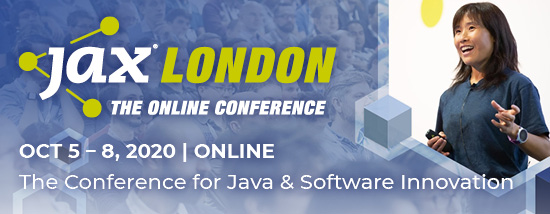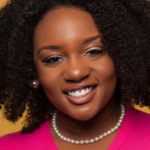A research study by The National Center for Women & Information Technology showed that “gender diversity has specific benefits in technology settings,” which could explain why tech companies have started to invest in initiatives that aim to boost the number of female applicants, recruit them in a more effective way, retain them for longer, and give them the opportunity to advance. But is it enough?
Two years ago, we launched a diversity series aimed at bringing the most inspirational and powerful women in the tech scene to your attention. Today, we’d like you to meet Julie Shamji, Business Solutions Architect and consultant at Unisys.
Today’s Woman in Tech: Julie Shamji, Business Solutions Architect and consultant at Unisys
 Julie Shamji is a Business Solutions Architect and consultant at Unisys with over 15 years of experience in technical roles. She discovered her passion for technology in high school and graduated university with a BSc degree in Computing, while being one of the only 4 women on the course.
Julie Shamji is a Business Solutions Architect and consultant at Unisys with over 15 years of experience in technical roles. She discovered her passion for technology in high school and graduated university with a BSc degree in Computing, while being one of the only 4 women on the course.
She joined Unisys as part of their graduate programme, where she held several roles as a Business Analyst, Business Architect and Lead Technical Architect.
Julie’s extensive knowledge and dedication have contributed to the company’s growth, by providing leading services to her clients and securing new business opportunities.
When did you become interested in technology?
I first became interested in technology in high school. I remember as soon as I received my first computer, my interest in computing started to grow. IT was part of my high school curriculum and I chose Computing as one of my A levels. That was the first time I came across programming and my interest grew. When I picked Computing as my degree, I immersed myself in the world of Java and the inner workings of databases, which made me choose a more technical career path.
How did you end up in your career path?
As I graduated, I found it difficult securing a job because many companies were looking for people who had previous experience. I had the opportunity to work for a college as part of their technical staff, but later on I applied for a graduate position at Unisys as I wanted a full-time role. I joined with 5-6 other graduates – some developers like myself and some that worked as support analysts. The project I started working on was very legacy at that time and I managed to work my way up as I had many opportunities to learn from working with our clients. A year later, the direction of the company started to change. I joined the company just at the time when a new way of working started to become implemented, so I have noticed a lot of change since coming here.
I am proud of my contribution in helping our clients achieve their goals and providing confidence in our services.
Did you receive support from your family and friends?
In terms of getting education and progressing in computing, I have to owe it to my family. My mum was unable to pursue further education to progress in a higher career, so since I was young, she always encouraged me to continue my education and follow a career path that I enjoy. Although computing was not a mainstream sector at that time, especially for girls, my family never objected and supported me in developing myself for a computing career. I think it is very important for a family to be supportive of their children and their chosen careers no matter what gender stereotypes are pervasive in society.
Did someone ever try to stop you from learning and advancing in your professional life?
Although I was one of the only four women on my university Computing course, I never felt that I was disadvantaged in any way compared to the men I was studying with. If you’re a woman who wants to progress in technology, I personally haven’t seen any sexism or any blockers that didn’t allow me to progress in my career because I am a woman. Maybe I am one of the lucky ones but I haven’t experienced this issue with the great team of people I work with at Unisys.
A day in Julie’s life
I am a Business Solutions Architect at Unisys. My workday is never the same and each day brings new learning opportunities. For example, at one point we had 2 projects side-by-side for one of our clients. I contributed as a Business Analyst and Business Architect for the first project, and with the second one I was the Lead Technical Architect, having more contribution this time around. That’s one of the main reasons I have been with Unisys for over 15 years, due to things constantly changing and keeping me intrigued.
What are you most proud of in your career?
I am proud of my contribution in helping our clients achieve their goals and providing confidence in our services. For example, I have been working with one of my clients for several years and through our work we were able to even get new business opportunities within the same project.
Why aren’t there more women in tech?
I think it’s really down to cultural aspects. When I was at university there were 2 courses that ran side-by-side and we had a number of joint modules. One course was called Business Technology and the other one was called Computing. Within my Computing course, we had 80-100 students and out of them there were only 4 women. The Business IT course was more like a 50-50 split. I think there is a cultural aspect to this, as I have noticed more women go into business or management roles than technical ones.
Could you name a few challenges (or obstacles) women in tech face?
As mentioned before, I think one of the obstacles we face as women in tech are the cultural stereotypes. I have seen women going into management roles, however with few opting for a technical role. By working with our Unisys colleagues in India, I have found out there are more women working in developer roles there. With fewer women role models in technical roles, women may not currently consider technical careers. I think women should choose role models of any gender to aspire to as persons of any gender can have the right personality and ambition that women want to follow.
If you work hard and continue to learn you will have all the chances to progress in your career.
Would our world be different if more women worked in STEM?
Gender pay gaps have been highlighted in recent years, however I don’t know the full extent of the problem as I don’t compare my pay to others. I believe that maybe if there were more women in technical roles demanding equality, gender pay gaps may be closed more in the industry as a whole and we may see more equality in society in general. Unisys fosters an inclusive culture for women that focuses on respect, positive ideas, and equal opportunities for all people. If all organisations do this, this will not only improve the organisations themselves, but our local communities and our society too.
The discussion about diversity is gaining momentum. How long will it take to see results from the current debate?
This is a tough question for me to answer and my answer might be seen as a little controversial. While I believe that we need more diversity in general, I also believe in the right person for the role. I believe diversity to be more than just characteristics such as gender, race and religion. I believe that diverse ideas and ways of thinking have more benefit to industries and society than hiring based on diversity quotas. I believe that all people can only have the same opportunities once societal issues like access to the same level of education is resolved. With investment in this area, the results should start to show in the near future.
What advice (and tips) would you give to women who want a tech career?
Forget about the stereotypes and think about what you really want to do. If you enjoy technical roles, there’s no reason you cannot progress in technical roles like I’ve had myself. Do not let anybody else steer you away to a different direction from the things that you are passionate about. If you work hard and continue to learn you will have all the chances to progress in your career. Every woman, from every position, from every company should enjoy what they do, the same way men do.
More Women in Tech:
- Women in Tech: Emilie Gieler, Vice President of Platform & UX at Akeneo
- Women in Tech: Shani Gale, Director of Product Management at Snyk
- Women in Tech: Marie Godfrey, SVP of Products at Flexera
- Women in Tech: Hiral Patel, Founding engineer at Diamanti
- Women in Tech: Christin Matt, Senior Game Designer
For even more Women in Tech, click here
The post Women in Tech: “It’s important for family to be supportive of their children” appeared first on JAXenter.
Source : JAXenter























